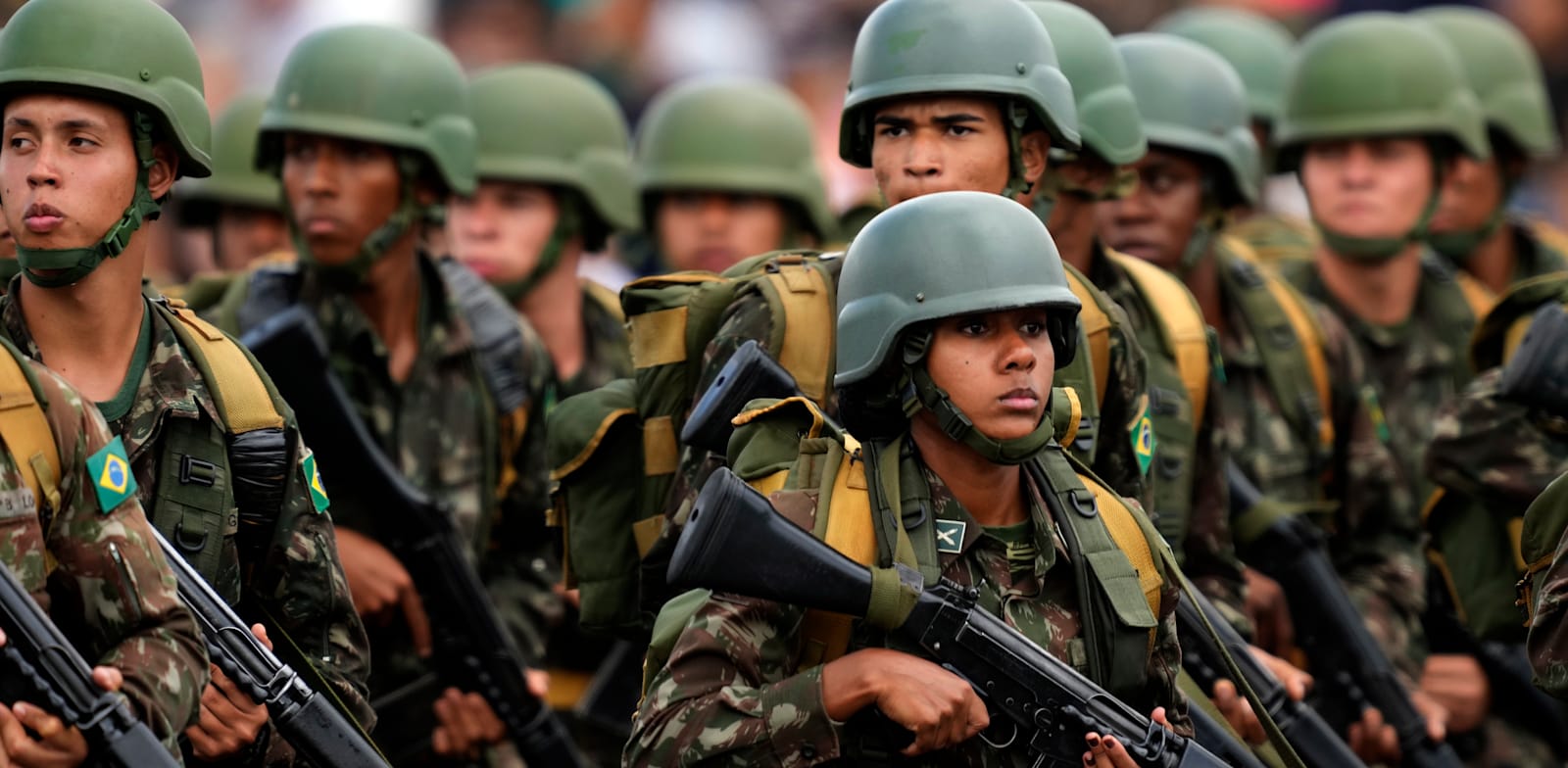The Brazilian army has decided to temporarily suspend the signing of a deal to purchase 36 Atmos cannons manufactured by Elbit, after the Israeli company emerged as the winner of the local tender in late April. It was reported in local media yesterday that Elbit’s Brazilian subsidiaries, Ares and AEL, won the tender for a total of 750 million riyals (approximately 145 million dollars).
According to the media outlet “Terra,” the Brazilian army cited changes made in the final stages of the process as the reason for postponing the signing of the deal. This delay will allow the legal advice of the Ministry of Defense in Brasilia to review the procedure again. The move is seen as a measure to ensure that the decision to select Elbit as the tender winner can be thoroughly justified.
As part of the initial tender, Elbit is expected to transfer two Atmos cannons to the Brazilian army for a two-year testing period. Following successful tests, the final contract can be signed for the remaining 34 cannons. Despite the procurement process starting in 2017, the current postponement is anticipated to be at least 60 days long, with the entire acquisition process scheduled for completion by 2034, according to the original plan.
The Atmos system features a howitzer gun capable of firing all NATO-approved 155mm shells and projectiles, with a range beyond 40 km using standard projectiles. The system also offers an extended range with rocket-assisted projectiles (RAP). The decision to select Elbit as the winner of the tender was supported by the need to modernize the army’s artillery forces and the anticipation of generating 200-400 new direct jobs and 400-700 new indirect jobs through the deal.
However, a public outcry was made against the decision, with a letter of protest signed by notable Brazilian figures, including Jose Dirsao, the former chief of Lula’s presidential office, urging the president to cease trade relations with Israeli companies due to their actions in the Gaza Strip. This protest, combined with calls from prominent Brazilian artists and human rights activists, is believed to have contributed to the delay in finalizing the deal.
